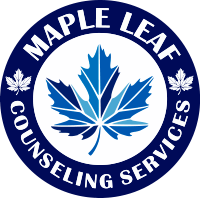Mental health is a topic that’s increasingly making its way into the spotlight. Understanding the many conditions that fall under this umbrella is essential not just for those directly affected but for their loved ones and society. One of the more complex and less understood conditions is schizoaffective disorder.
If you or a loved one is struggling with mental health and showing signs of schizoaffective disorder, know that help is available. Call 989.220.3060 or contact Maple Leaf Counseling online today for information about our schizoaffective disorder treatment program. We can help.
What Is Schizoaffective Disorder?
Schizoaffective disorder is a psychological condition that combines the symptoms of schizophrenia, such as hallucinations or delusions, with periods of severe mood swings, either toward depression or mania. It is often confused with schizophrenia but is a distinct condition with its own set of challenges. People with this condition can experience great difficulties in their professional lives, social interactions, and often in establishing or maintaining relationships. Schizoaffective disorder is diagnosed when an individual’s symptoms show a mix of schizophrenia symptoms and mood disorder symptoms, such as major depressive episodes or manic periods.
The onset of schizoaffective disorder usually occurs in the late teens to early thirties, affecting men and women with equal frequency. This can be a particularly vulnerable time for individuals, as their social and occupational functioning is typically taking shape.
Signs of a Schizoaffective Disorder
The exact cause of schizoaffective disorder is still unknown, but researchers believe it may be a result of genetics, environmental factors, or chemical imbalances in the brain. It usually develops in early adulthood but can also occur later in life.
Some common signs of schizoaffective disorder include:
- Delusions or false beliefs
- Hallucinations, such as seeing or hearing things that are not real
- Disorganized speech and behavior
- Changes in mood, ranging from manic episodes to depressive episodes
- Difficulty focusing or paying attention
- Lack of motivation or interest in activities
If you or someone you know is experiencing these symptoms, it is important to seek professional help for a proper diagnosis and treatment plan.
How Are Schizoaffective Disorders Treated?
Medication
A big part of the management of schizoaffective disorder is medication. This can include mood stabilizers, antipsychotics, and antidepressants, depending on the predominant phase of the illness. These drugs are aimed at stabilizing mood and reducing the intensity of psychotic symptoms. It’s crucial that the individual adheres to their medication regimen and is monitored for any potential side effects, including weight gain, diabetes, or the possibility of metabolic syndrome.
Psychotherapy
Engaging in psychotherapy along with medication can be extremely beneficial. Cognitive-behavioral therapy (CBT) can help manage and reduce the impact of symptoms. In contrast, supportive therapy can assist in managing the emotional components of the condition and focusing on social and occupational functioning.
Hospitalization
In some serious cases, where the individual’s safety is at risk, or if their symptoms are severe, hospitalization might be necessary. This can ensure a safe environment and more intense treatment than is available on an outpatient basis.
Support Networks
Having a strong support network that may include family, friends, or support groups is imperative for individuals dealing with schizoaffective disorder. Social support can help reduce feelings of isolation and provide a resource for coping strategies.
Self-Care
Finally, self-care is of the utmost importance. Establishing a routine, getting regular exercise, and maintaining good nutrition can help manage symptoms. Additionally, avoiding alcohol and drugs is essential, as individuals with schizoaffective disorder are already vulnerable to psychological stressors, which can be exacerbated by substance use.
Contact Maple Leaf Counseling for Schizoaffective Disorder Treatment in Michigan
If you or a loved one is struggling with the signs and symptoms of schizoaffective disorder, it’s crucial to consult a professional. At Maple Leaf Counseling, we offer comprehensive treatment and support for individuals living with this challenging condition. By reaching out for help, you can start the journey toward understanding, management, and a better quality of life. Call 989.220.3060 or contact us online for the help you need today.




